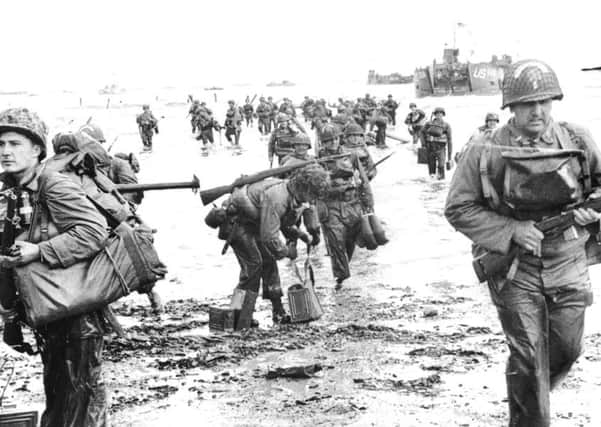Honour for D-Day Captain whose weather forecast changed the course of history


And although he was unknown to the public, Group Captain James Stagg held hundreds of thousands of lives in his hands when he advised allied commander Dwight D. Esienhower that conditions were favourable to launch the largest invasion the world has ever seen.
Now, 75 years to the day since the allied forces stormed the beaches of Normandy, his home town of Dalkeith will finally honour James Stagg will a memorial plaque unveiled by his son on 6 June, 2019.
Advertisement
Hide AdAdvertisement
Hide AdThe Normandy landings were initially scheduled a day earlier, but bad weather made it seem that the operation would have to be delayed by two weeks, increasing the chance that enemy forces would find out about the plan.
Eisenhower was faced with a terrible choice: leave on 5 June as planned and risk failure of the mission if the boats were unable to land, or postpone by two weeks and risk the Germans finding out.
At the eleventh hour the son of a plumber from Dalkeith, Midlothian offered Eisenhower a third option.
Group Captain Stagg and his team predicted a break in the weather and persuaded the general that if he delayed the operation’s launch by just 24 hours the plan could still go ahead.
Eisenhower did so, and the landings changed the course of the war and turned the tide in favour of an Allied victory.
James Stagg went on to receive the American Legion of Merit, as well as an OBE and CB back in Britain. However, despite his story being well-documented, it was not popular knowledge.
Now, nearly 44 years after his death in 1975, Stagg will receive another honour: a memorial plaque is to be erected in his home town of Dalkeith.
Thanks to the crowdfunding efforts of a local history enthusiast, Sharon Mackintosh, a plaque will be unveiled outside Dalkeith Library on Thursday, 6 June, 2019, 75 years to the day after the D-Day landings.
Advertisement
Hide AdAdvertisement
Hide Ad“I can’t believe it’s finally happening”, Ms Mackintosh told the Evening News, “this means the world to me.”
“James Stagg played a huge part in the success of the D-Day landings, and his significant contribution richly deserves this lasting recognition in his hometown,” she said.
Ms Mackintosh discovered Stagg’s story after seeing the play Pressure in 2014 at the Lyceum, Edinburgh, which told the story of the hours leading up to Stagg’s decision and the resultant tensions between Stagg, Eisenhower and Irving Krick, another advising meteorologist.
His role in the momentous event was also featured in the 1962 film The Longest Day, in which Stagg’s character was played by Patrick Barr.
A Dalkeith local, Ms Mackintosh was astounded that she had never before heard the story of a man from her home town who had played such a crucial role in the Allied victory.
She decided that this “unsung hero” deserved to be recognised.
She set up a crowdfunding campaign to raise the £1,247 needed for a commemorative plaque, which could not be organised through Historic Scotland as the building in which Stagg lived has now been demolished.
That site, formerly No 153 Dalkeith High Street, now No 169, will also be marked with a second, smaller plaque.
The memorial plaque outside Dalkeith Library will be unveiled on 6 June by James Stagg’s son Peter Stagg, a former rugby player who played for Scotland and the British Lions between 1965 and 1970.